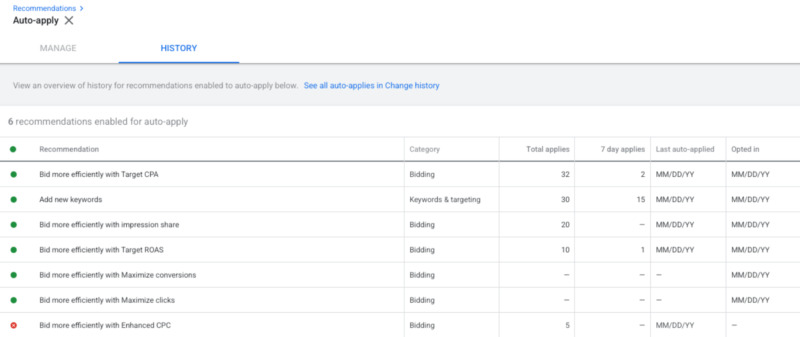Search Engine Land’s daily brief features daily insights, news, tips, and essential bits of wisdom for today’s search marketer. If you would like to read this before the rest of the internet does, sign up here to get it delivered to your inbox daily.
Good morning, Marketers, and what does it all mean?
Three-fourths of Americans who said they like personalized advertising also said they would support legislation forbidding companies from selling their personal data to third parties, even with their consent, according to a survey from Security.org. The same survey found that only 2% of people actually read terms of service to know where that data is going.
So, what does this mean for advertisers? It seems like it’s a common trend that users want a personalized experience when it comes to ads, social media, and even YouTube suggestions, but they may not actually care to read the tons of fine print that explains how that customized experience happens. Or they don’t know that the data they give up is what provides that personalized experience.
With Apple’s IDFA update, apps have 2 short lines to explain why users should consent to give up their data, but if the majority automatically click “deny,” how can we help make the connection for them? Collecting first-party data is one option. But what do you think? Or are you even worried about it? Let me know [email protected].
Carolyn Lyden,
Director of Search Content
Google Ads rolling out auto-applied recommendations


Google now allows advertisers to opt-in to apply a certain subset of recommendations automatically to your account. This “can improve your account performance and save time,” wrote Google, but many agencies will probably recommend that their clients do not opt-in as some of the recommendations may not actually improve account performance.
The auto-applying recommendations will not increase your budget, “so continue to review the Recommendations page to ensure your budget isn’t limiting your performance,” said Google. Microsoft launched a similar feature last week for auto-applied ad recommendations in Microsoft Advertising.
Why we care. If you manage Google Ads campaigns, you will want to make sure to see if you or someone else in your organization selected to opt-in to this program. Auto-applied recommendations might save people time but it might not always be the smartest way to spend your ad money. So just be on top of it and make sure the recommendations being applied really do have a positive impact on your ROI and campaign objectives.
SMX Advanced wants you to speak!
The SMX Advanced (June 15-16) program is shaping up and I’m excited to see it all come together. We’re still looking for speakers to present on these specific topics:
- RankBrain, BERT, Passage Ranking, Turing: What Do All These Natural Language Processing Systems Do For Search
- How changing audiences are affecting paid campaigns (including FLoC)
- Scaling and developing your PPC team
- Increasing the quality of your first-party data after FLoC
If you have experience in these topic areas and examples to share, please consider submitting a session pitch. Jump over to this page for more details on how to submit a session idea, or directly to this page to create your profile and submit a session pitch.
Questions? Let me know at [email protected].
Google Assistant can now help order takeout
Takeout has been the trend du jour in lockdowns and quarantine time. Google has evolved and added order buttons for restaurants on Google My Business and Maps. Now, Google is making it easier to get our food all in one place.
“To make online food orders even easier, Assistant can now help you complete your purchase in only a few steps powered by Duplex on the web. To get started, you’ll need to first search for a restaurant near you from the Google App on Android and select ‘Order Online’ or ‘Order Pickup.’ When you finish your online takeout order from a restaurant we partner with and click ‘check out.’ Assistant will automatically navigate the site and fill out your contact and payment details saved in Google Pay and synced to Chrome Autofill.,” wrote Lilian Rincon, Senior Director of Product Management for Google Assistant.
Why we care. The program is currently partnering with select restaurant chains but will be adding more this year. If you help manage the local SEO or Google My Business listing for restaurants or food franchises, this is another opportunity to capture demand all in one place. The ease of use can make it easier for customers to complete orders and could streamline your takeout processes if done right.
The business imperative behind inclusion and diversity
In the second of two articles based on a wide-ranging conversation with Lauren Tucker, we focus on managing and enriching the talent portfolio. Dr. Tucker is the founder of Do What Matters, a consultancy that advises marketing and communications agencies on inclusion, equity and diversity. She puts inclusion first because she believes that diversity will flow in environments where the tide lifts all boats.
She told us: “I’m still getting people reaching out to me who are at the VP or SVP level, especially women of color — and I will say this very emphatically — women of color at the VP and SVP level have not gotten the kind of sponsorship they deserve, and not gotten the opportunities they deserve. And when I follow up, I get the same answer which is, you know, she’s really great. She’s really a utility player. We just don’t know what to do with her. Wow, okay. I don’t think any of these people have admitted or even understand what they’re admitting at that point.”
There’s a business as well as an ethical imperative to fix problems like this. In order to create memorable, meaningful and remarkable content for increasingly multicultural and global audiences, the talent portfolio must be enriched with diverse perspectives and experiences. If you don’t create that kind of content, she says, “your competitors are going to eat your lunch.”
Android is the top mobile OS


Last week, the Supreme Court concluded that Google’s use of Oracle’s code in its Android operating system was fair use. This chart from chartr shows us why that decision likely stings:
“Oracle was hoping that it might be owed up to $9 billion in compensation, as Android went on to become the dominant operating system for mobile phones around the world… Android might be (mostly) free at the point of use, but it’s a huge revenue generator for Google. The Google Play Store is the official app store for Android devices, and it’s very likely a big chunk of the $21bn of revenue that Google reported as “other revenues” in 2020. On top of that, you can add on all the revenue from Google Search, YouTube and other Google apps that usually come pre-loaded on Android devices.”
Hesitation around auto-applied recommendations, managing reviews in GMB and is the PPC keyword dead?
Tell us how you really feel. Kim Doughty is at it again sharing a gif of what it feels like to turn on auto-applied recommendations for Google Ads. Check out the tweet here [don’t worry — there’s more than one POV in this tweet thread].
Are you using the GMB tools to manage reviews? About a month ago, Google My Business released a new tool to manage your reviews all in one place and check the status of reviews you’d reported to Google. If it’s not part of your local SEO workflow already, make sure to check it out.
Are keywords dead in PPC? “If the keyword is not telling us as much as we think it is, then we have an obligation to evolve with Google’s system for the good of the accounts we manage. After all, we’re here to grow our PPC accounts the best we can,” wrote Kirk Williams.
Employee-based forecasting is the key to keeping your business in control
I’ve worked in startups and SaaS before, and one thing I’ve noticed is that, when businesses jump aboard the venture capital train (choo choo), the numbers become the star of the show. We’re talking ARR, ROAS, LTV, QoQ growth — you get the picture.
Too often, organizations use these numbers as retroactive measures of success. We check our KPIs and OKRs at the end of each sprint, and that’s how we make sure we’re on the right track. But what if we stopped using numbers as historical statements and started involving team members to help change the outcomes in the moment?
That’s the premise of this article from Bill Fotsch and John Case: When businesses involve their employees in the daily efforts of affecting those numbers, the team members were able to make productive changes that helped businesses reach goals.
“Since employees are engaged in the forecasting process, they’re suddenly engaged in the business itself. They’re finding ways to affect outcomes. They’re thinking like trusted partners and acting like trusted partners. Forecasting doesn’t just help you get in control of your business. It allows employees to understand priorities, anticipate opportunities, and take responsibility for results.”
The piece dives into how a health clinic put their team members in charge of forecasting and reporting on the key metrics tied to those numbers. The result was that work became a learning environment for testing new strategies and improving what did work.
Many business owners may feel the onus of worrying about P&L, budgets, and financials belongs to them alone, but data shows that teamwork makes the dream work. So share the load, Frodo.
Contributing authors are invited to create content for Search Engine Land and are chosen for their expertise and contribution to the search community. Our contributors work under the oversight of the editorial staff and contributions are checked for quality and relevance to our readers. The opinions they express are their own.



